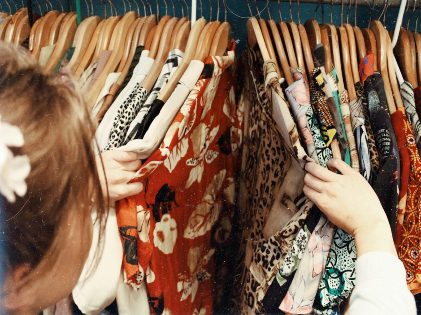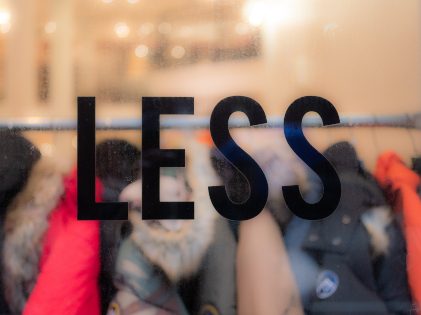One of the most prevalent and significant issues that plague our planet is the environmental hazards it is put through daily. Whether it is pollution, global warming, draughts, or water shortage, the people of this planet are suffering immensely, as we fail to make more responsible and environmentally-friendly life choices. Even though water makes up to 70 percent of our world, many cities and villages struggle with having a fresh supply of water. One way to combat this is to reduce the excessive wastage of water somehow. However, we fail to recognize and reduce our water footprints, or the extent of water consumption at an individual, organizational, or community level.
Water isn’t just necessary for humans to stay alive and healthy, but it is also an essential component for manufacturing most of the items that we use, for instance, our clothes. However, what many industrialists and activists overlook are the water footprints left behind during such processes.
What Are Water Footprints?
 To put simply, water footprint is simply the quantity of water that a product, service, or process utilizes to be carried out effectively. Water footprints can also be used to deduce the amount of water that a country, city, or town consumes.
To put simply, water footprint is simply the quantity of water that a product, service, or process utilizes to be carried out effectively. Water footprints can also be used to deduce the amount of water that a country, city, or town consumes.
Make More Eco-Friendly Choices
What most people are not aware of is the fact that if we choose to make eco-friendly choices while shopping for clothes then, collectively, we will be able to save a mind-boggling amount of water. A simple, regular cotton shirt requires approximately 700 gallons of water. This quantity of water can fill up to 12 barrels.
Contrary to popular opinion, being eco-friendly does not equate to completely boycotting shopping products, and in our case clothes. However, it is asking ourselves certain questions. Next time you pick up a shirt from the rack, ask yourself if you need the shirt, will be buying this shirt give you any benefit, can you borrow it from a friend, and if you can do good without buying that piece of clothing.
 Another practice that you can adopt is giving away the clothes you do not wear anymore to people in need. Once you consciously try to inculcate this habit you will notice that, unfortunately, we are surrounded by plenty of people who cannot afford something as simple as a shirt. This habit will not just prevent you from wasting clothes but will also inculcate empathy in you for the needy.
Another practice that you can adopt is giving away the clothes you do not wear anymore to people in need. Once you consciously try to inculcate this habit you will notice that, unfortunately, we are surrounded by plenty of people who cannot afford something as simple as a shirt. This habit will not just prevent you from wasting clothes but will also inculcate empathy in you for the needy.
Thrift Your Wardrobe Out
Another habit to pick up on is to buy lightly used items. Selling used imported and branded items is a source of livelihood for many people so you’re sure to find many kiosks, shops, and social media pages selling thrift clothes. Thrift stores are riddled with unique and stylish clothes. From hats to shades, to jeans, to overshirts, be prepared to find all sorts of clothing items and accessories are a thrift store.
 If buying at a thrift store is not what you prefer, selling or giving away your slightly used pieces can be an alternative. Many thrift stores are willing to give a reasonable price for your preloved clothes which they further sell to their customers at a profit.
If buying at a thrift store is not what you prefer, selling or giving away your slightly used pieces can be an alternative. Many thrift stores are willing to give a reasonable price for your preloved clothes which they further sell to their customers at a profit.
If your clothes are not in a condition to be worn again, it doesn’t indicate that they’re completely useless. You can use your worn-out clothes, especially shirts and trousers, as cleaning rags. In addition, you can also give them cloth recyclers near you.
Change Starts with You
The first step towards minimizing water wastage is keeping track of water footprints. On a personal level, you can adopt habits as simple as turning the tap off while brushing, fixing taps instantly if they are constantly leaking, using a can instead of a hose to water your garden, etc.
In addition, while you shop for clothes, try thinking long-term. If the clothing item is something you won’t be wearing more than a couple of times in the near future, it’s probably not worth buying. Making smart and more educated choices have the power and potential to shape a better future for us. As citizens of this planet, each one of us is responsible for making others around us more aware. Educating your friends and neighbors about such important issues is imperative.




